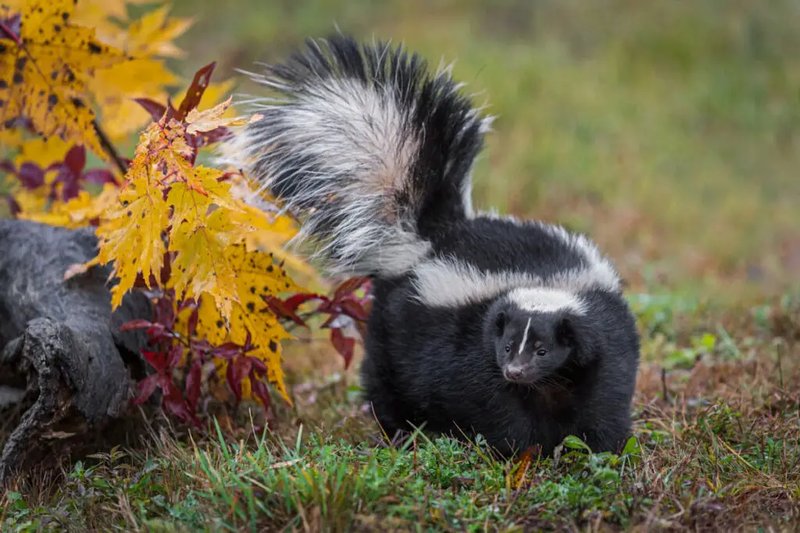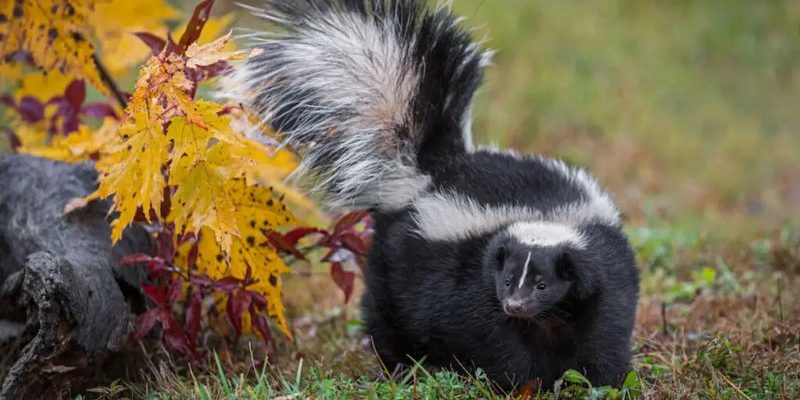
Skunks are often misunderstood. They carry a reputation that’s hard to shake off. Sure, they can spray, but they’re not typically aggressive creatures. Most skunks are more interested in snuffling through your garden for tasty grubs than causing trouble. However, it’s essential to consider when they could pose a risk to us—particularly since they can carry diseases and their scent can make them quite unwelcome visitors. Let’s dive into the world of skunks and really explore how dangerous they can be.
Understanding Skunk Behavior
To grasp whether skunks are dangerous, we first need to understand how they behave. Skunks are nocturnal animals, meaning they do most of their foraging at night. When you see one waddling around, it’s usually just on a quest for food. They’re omnivores, so they eat a variety of things including insects, fruits, and even small rodents.
You might be wondering, “What happens if I accidentally get too close?” Here’s the thing: skunks prefer to avoid confrontation. If they feel threatened, they’ll often give warning signs like stomping their feet or raising their tails. Most skunks will try to retreat before using their spray. So, the best approach if you encounter one? Just back away slowly and give them some space.
The Skunk Spray: A Unique Defense
Let’s talk about that infamous spray. Skunks have a pair of glands that produce a potent, foul-smelling liquid. When sprayed, this odor can linger for days, not just on you but in the surrounding area, making it pretty unforgettable. This natural defense acts as a deterrent against potential predators.
But can the skunk’s spray be dangerous? While it can cause temporary irritation if it gets in your eyes, it isn’t lethal. You might find yourself scrubbing and showering for a while if you’re the unfortunate target, but there’s usually no lasting harm. So, while the spray isn’t pleasant, it’s more of a nuisance than a serious threat.
Are Skunks Carriers of Disease?
Here’s where things get a little more concerning. Skunks are known carriers of certain diseases, notably rabies. This viral disease can affect mammals, including humans. However, it’s important to note that not all skunks are rabid. In fact, the number of rabid skunks isn’t as high as you might think.
If a skunk appears sick or behaves strangely—like being unusually aggressive or wandering around during the day—that’s a red flag. In such cases, it’s best to steer clear and contact animal control. Rabies can be serious, but the risk of encountering a rabid skunk is relatively low, especially if you’re mindful and respectful of wildlife.
How to Safely Coexist with Skunks
So, how can you live in harmony with skunks without fear? First, always keep your distance. If you stumble upon one, give it room to escape. Avoid leaving food outside, like pet bowls or garbage, as this can attract skunks and other critters to your yard.
You might also consider using fencing or natural repellents to keep them away. Securing your trash cans is another effective strategy. Making your space less appealing to skunks can greatly reduce your chances of an unwanted encounter.
What to Do If You’re Sprayed
In the unfortunate event that you are sprayed, don’t panic. The first thing you should do is get away from the area to avoid further exposure. Next, tackle the smell as soon as possible. There are several home remedies, such as mixing baking soda, hydrogen peroxide, and dish soap to create a powerful de-skunking solution.
It’s crucial to avoid using tomato juice, as it’s often touted as a remedy but doesn’t really work effectively. After treating your skin or clothing, make sure to wash everything thoroughly. And if you’re dealing with a pet that got sprayed, the same rules apply—you’ll want to treat them quickly and kindly.
When to Seek Professional Help
If you find skunks are becoming a regular sight in your backyard, or if you suspect a skunk colony is setting up camp, it might be time to call in the professionals. Local wildlife control can assess the situation and safely remove the skunk(s) if necessary.
Remember, it’s always best to handle wildlife situations humanely. Skunks play an essential role in our ecosystems by controlling insect populations and dispersing seeds. Keeping them at a safe distance while respecting their role in nature is key.
Final Thoughts: Skunks Aren’t Your Enemies
So, can skunks be dangerous to humans? The answer is generally no—if you observe them safely and respect their space. While their spray and potential to carry disease are legitimate concerns, being informed and cautious can help you coexist with these fascinating creatures.
At the end of the day, skunks are just trying to go about their lives, much like the rest of us. Understanding their behavior, knowing how to avoid conflicts, and handling encounters wisely is the best way to appreciate these quirky animals without fear. Embrace nature, and know when to step back; it’s all part of the adventure!

